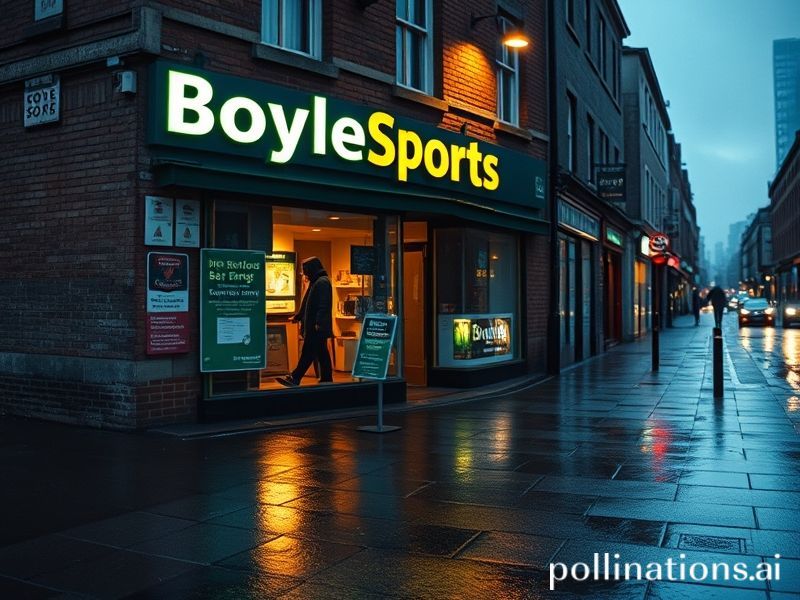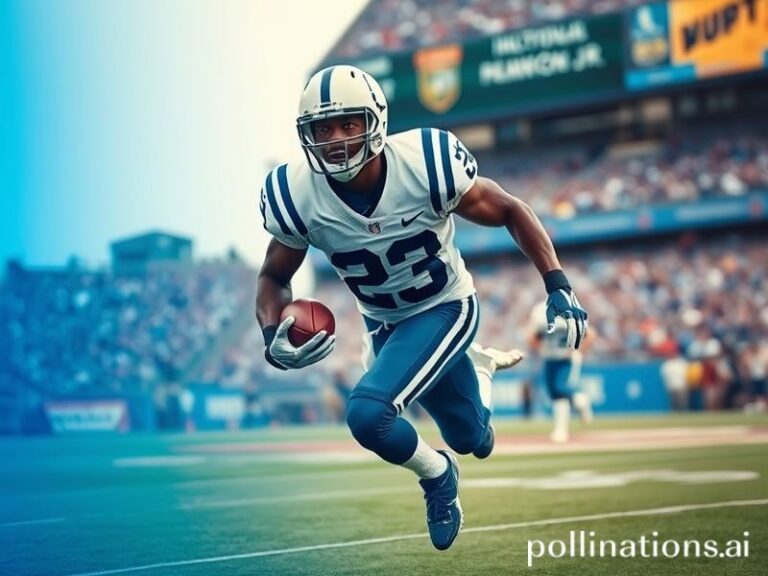Boylesports: How an Irish Bookmaker Became the World’s Bookend for Hope and Despair
Boylesports: The Emerald Empire of Lost Causes and Found Fortunes
By a correspondent who has seen sharper odds in a North Korean election
Dublin—In a world where national borders reopen and slam shut like malfunctioning elevator doors, one Irish bookmaker has quietly become the global bookend for our collective neuroses. Boylesports—founded in the backroom of a County Louth pub in 1989—now takes bets from Lagos to Liverpool, proving that the human urge to hurl money at uncertainty is the one commodity no tariff can touch.
You’d be forgiven for thinking the sports-betting industry peaked when American states discovered they could monetize the national pastime of self-delusion. Yet Boylesports has outpaced flashier Silicon Valley apps by perfecting the ancient art of monetizing hope and self-loathing in equal measure. While DraftKings throws yacht parties and FanDuel sponsors halftime light shows, Boylesports has taken the more poetic route: sponsoring greyhound tracks where the dogs look more optimistic than the punters.
The company’s reach is almost imperial in scope. It operates 300 shops across Ireland and Britain, a digital platform that accepts wagers in euros, sterling, and whatever cryptocurrency Elon Musk is flirting with this week, plus a white-label service that lets smaller nations outsource their own citizens’ despair. Somewhere in Malta, a server hums with Kyrgyzstani tenge being staked on the third division of the Belarusian futsal league. Globalization’s final frontier, it turns out, is a 24-year-old in Bishkek betting his phone bill on a sport he can’t spell.
Boylesports’ international expansion coincided neatly with the pandemic, that golden era when governments begged citizens to stay home and simultaneously handed them stimulus checks—an economic model previously tested only on lab rats with slot machines. Revenue reportedly doubled between 2020 and 2022. Nothing says “public health crisis” like a spike in prop bets on whether the next news conference will feature a cough.
But the firm’s real genius lies in cultural translation. It offers odds on Gaelic games for nostalgic expats in Sydney, cricket for the Indian diaspora in Toronto, and—because irony is the only universal language—political futures on elections from Washington to Warsaw. Last year it briefly took bets on the exact minute a certain former US president would be indicted, then apologized for “any offense caused,” which in corporate speak translates to “thanks for the free publicity.”
Regulators from Brussels to Brisbane now study Boylesports the way ornithologists study a particularly adaptable urban pigeon: equal parts admiration and low-level panic. The EU’s forthcoming gambling directive—rumored to be longer than Dostoevsky and twice as depressing—aims to curb aggressive marketing. Good luck. The company’s latest ad campaign features a leprechaun who looks like he’s seen things, promising “luck you can trust,” which is a bit like promising sobriety you can taste.
Meanwhile, in the Global South, mobile penetration has turned every corner shop into a potential satellite branch. A 19-year-old in Nairobi can parlay English Premier League corners with Korean baseball totals before breakfast. Development economists call it “financial inclusion”; the kid calls it Tuesday.
The moral arc of the universe may bend toward justice, but it detours through a betting slip first. Boylesports didn’t invent human weakness; it merely built a better vending machine for it. And as climate change, inflation, and the general circus of geopolitics erode traditional safety nets, the planet’s newest safety blanket is the possibility—however remote—of turning a fiver into freedom.
So here we are: 8 billion souls orbiting a dying star, clutching phones that double as confessionals and wishing wells. Somewhere in County Louth, the original pub still stands, a shrine to the proposition that the house always wins, except for that one glorious, statistically inevitable moment when it doesn’t. Until then, Boylesports will keep the lights on, the odds moving, and the global dream alive: that somewhere, somehow, the next spin will justify the last 37.
Place your bets, humanity. The line is open, and the clock on self-control expired sometime in 1997.







